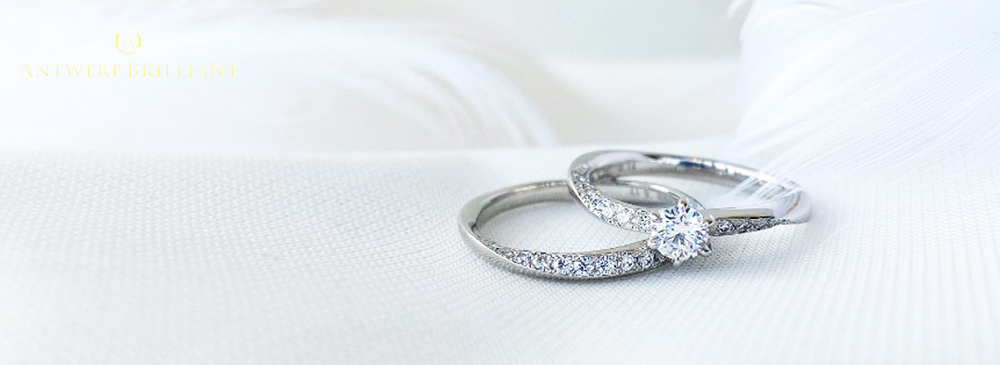皆さんこんにちは!ブリッジ銀座アントワープブリリアントギャラリーです。
今日はGIAのサイト内にダイヤモンドの輝きについての考察論文が上がっていたので紹介します。
参考文献以下giaの公式Webサイトより
https://www.gia.edu/gia-news-research/gia-researchers-evaluate-light-performance-diamond-cut
このページには興味深い事が書かれています。ダイヤモンドの輝きに関する文章です、この中ではダイヤモンドの輝きに関する考察が延々と書かれています。中でも面白いのはダイヤモンドの輝きを数値化する様々な測定機について否定的だという事ですね。ダイヤモンドの輝きを測定する場合の公平性や輝きの集中方法にも言及していてかなり公平な文章だと思いました。中でも気に成った部分を抜粋してご紹介します。
本文:OTHER FACTORS THAT AFFECT LIGHT PERFORMANCE
Some of the light performance information out there is very questionable. Polished diamonds return less than half the light energy that enters them, not “most” of it. Brighter does not indicate better appearance, because brightness is different than brilliance — both a mirror and a sheet of white paper return a lot of light, but neither is brilliant.
Human perception of brilliance requires a well-distributed contrast of light and dark areas. A diamond with good contrast and somewhat lower light return can look better than one with high light return and little contrast. Additionally, the diamond should also “perform” well while rocking and tilting (the dynamic aspect of light performance). The change in contrast and brightness is an important part of what the eye sees and should be part of an evaluation of light performance.
Personal taste is an important factor of perceived light performance. During our observation experiments, GIA found broad agreement on the displeasing aspects of diamond appearance, such as large areas of darkness, but noteworthy disagreement on what is most pleasing. Focusing on a particular diamond appearance, such as Hearts & Arrows, to the exclusion of all others leaves little room for personal preference. Of course, GIA feels that information provided to a third party needs to be thorough and not just focused on one aspect of a diamond.
Note that light performance in many other systems does not include the impact of other important factors that provide comprehensive information about a diamond. Weight ratio (e.g. thick girdles), durability (risk for chipping) and craftsmanship (which includes symmetry and polish quality) are also very important criteria that should not be ignored in evaluating cut.
Coming back to the original question: what does light performance really mean? Since diamonds are something we wear to show to others, the answer should be tied a diamond’s visual appeal. Physics may say that a certain diamond under specific conditions returns more light than another, or has more fire than another, but do you and I see these things? Light performance should mean that computer modeling, instrumentation or any other methods that claim to evaluate a certain diamond and assign a value or a grade should be linked to what we actually see.
GIA continues to avoid the use of the term “light performance” because of the ambiguity with which the trade uses it.
という事で和訳しておきます。:光のパフォーマンスに影響を与える他の要因
そこにある光のパフォーマンス情報のいくつかは非常に疑わしいです。磨かれたダイヤモンドは、それらの「ほとんど」ではなく、それらに入る光エネルギーの半分未満を返します。明るさは輝きとは異なります。鏡と白い紙の両方が多くの光を返しますが、どちらもダイヤモンドの様なブリリアンスではありません。
人間が輝きをはっきりと強く知覚するには、明るい領域と暗い領域とが十分に分散されたコントラストが必要です。その結果多くの場合でコントラストが高く、光の反射がやや低いダイヤモンドのほうが、光の反射が高く、コントラストがほとんどないダイヤモンドよりも見栄えがよく輝いていると知覚します。当然ですが数値で光の反射だけで測定すれば前者の方が輝いていることに成ります。さらに、ダイヤモンドは正面視だけでなく斜めから見た目や、そもそも動きの中で、揺れているときや傾いているときにも「パフォーマンス」を発揮する必要があります(光のパフォーマンスの動的な側面)。コントラストと明るさの変化は、目に見える美しさ【輝き】の重要な部分であり、光のパフォーマンス評価の一部である必要があります。
また重要な事として知覚される光のパフォーマンスには好みに個人差が有ります。今回の観察実験中に、GIAは、広い範囲の暗闇など、ダイヤモンドの外観の明らかに美しさを損なうと判断される複数のポイントについて幅広い合意を見つけましたが、何をもってその人個人個人にとってより美しいのか?【光のパフォーマンスが高いのか?】については意見の相違があります。ハート&アロー(ハート&キューピッド)などの特定のダイヤモンドの外観に焦点を当てるために、他の輝きの要素すべてを除外することは、個人的な好みの余地をほとんど残しません。もちろん、GIAは、第三者に提供される情報は、ダイヤモンドの1つの側面だけに焦点を当てるのではなく、複数の要素の複合であるべきでその点については徹底する必要があると感じています。
輝き測定器など他の多くのシステムで測定された光のパフォーマンスには、ダイヤモンドに関する包括的な情報を提供する他の重要な要素の影響が含まれていないことに注意してください。(測定するパフォーマンス数値以外は無視される傾向に有る)重量比(太いガードルなど)、耐久性(欠けのリスク)、職人の技(対称性と光沢の品質を含む)も非常に重要な基準であり、4Cグレードにおけるカットの評価でもそれらは無視することはできません。※そのためエクセレントよりも光ると数値上で結論されたダイヤモンドが存在してしまいます。
本題に戻ります。光のパフォーマンスは実際には何を意味しますか?ダイヤモンドは私たちが他の人に見せるために身につけるものなので、答えはダイヤモンドの視覚的な魅力に結び付けられるべきです。物理学は、特定の条件下で特定のダイヤモンドが別のダイヤモンドよりも多くの光を返す、または別のものより多くのファイヤーを持っている事を証明したがるかもしれませんが、人間の目視で測定器がはじき出した光のパフォーマンスの差異を見抜けますか?光のパフォーマンスとは、特定のダイヤモンドを評価し、値またはグレードを割り当てると主張するコンピューターモデリング、インスツルメンテーションまたはその他の方法で算出したとするならば、実際に目にするものにリンクされている必要が有ります。
そうした光のパフォーマンスに対する曖昧さを使用して商取引がなされるべきではないので、GIAは「ライトパフォーマンス」という用語の使用を避け続けています。

私たちの結論
ダイヤモンドの美しさは様々な光の要素、輝きや明るさ、色温度、モザイクのバランス、全方位からの形の良し悪し、数え上げればきりがない物の複合値なのです。そこでは何が重要でしょうか?それは【パッと見】の美しさです。普遍美ともいうべき美しさは当たり前ですが数値化できません。原石の選定と研磨師の目利き、そして一つではなく複合する幾つもの光の項目を引き出すべく研磨師しダイヤモンドの輝きを引き出していく事こそ数値化された偏った美しさに左右されない普遍美を備える方法なんだと確信しています。
現在輝きを数値化して各付けしたい企業が多く小売店もその意図に振り回されていますが、美しいかどうか?は数値ではなく感じるものなのです。私たちは普遍美を追い求めて日々ダイヤモンドと向き合っていますが、これからもその目を磨き、本当の美しさを追い求めていきます。




